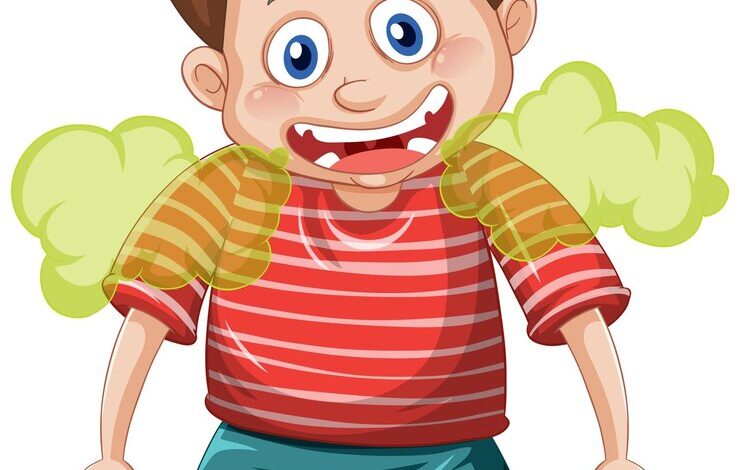7 Proven Ways to Get Rid of Bad Breath for Good
Simple Solutions for Bad Breath: Keep Your Breath Fresh All Day

Bad breath can be embarrassing and isolating. Whether you’re at work, on a date, or just talking to a friend, the last thing you want is for someone to notice unpleasant odors coming from your mouth. Fortunately, bad breath—also known as halitosis—doesn’t have to be a permanent problem. In this guide, we’ll uncover the most common causes of bad breath and explore effective, easy-to-follow remedies to keep your breath fresh and confidence high.
If you’re struggling with bad breath and tired of masking it with gum or mints, it’s time to address the root causes. Ready to make a fresh start? Let’s dive in!
Understanding Bad Breath: More Than Just a Nuisance
Bad breath can happen to anyone, but persistent halitosis is often a sign of an underlying issue. From poor oral hygiene to dietary choices, several factors contribute to bad breath. While some causes are minor, others may point to health problems that need attention.
What Causes Bad Breath?
You might be surprised by how many different things can cause bad breath. Here are the most common culprits:
- Poor Oral Hygiene: The biggest contributor to bad breath is poor oral care. When you don’t brush and floss regularly, food particles remain in your mouth, leading to bacterial growth on your teeth, gums, and tongue. This creates an unpleasant odor that only worsens over time.
- Food Choices: Certain foods, like onions, garlic, and coffee, can leave strong smells in your mouth. These foods release volatile compounds that get absorbed into your bloodstream, returning in your breath even after digestion.
- Dry Mouth: Saliva helps cleanse your mouth by removing particles that cause odor. If your mouth is dry, often due to dehydration or medications, bad breath can quickly follow.
- Tobacco: Smoking or chewing tobacco products can give you a stale breath while contributing to gum disease, which is another source of bad odor.
- Medical Conditions: Sometimes, bad breath is a symptom of an underlying health problem like sinus infections, digestive issues, or even diabetes. If your breath smells particularly sweet or fruity, it could be a sign of ketoacidosis, a serious complication of diabetes.
Fresh Breath Starts with a Healthy Mouth: Top Oral Hygiene Tips
It may sound basic, but keeping your mouth clean is the most effective way to prevent bad breath. Here’s how to maintain a routine that works:
Brush and Floss Regularly
To keep your breath fresh, brush your teeth at least twice a day and floss once a day. Make sure you’re cleaning every surface of your teeth, especially along the gum line where bacteria tend to hide. Don’t forget your tongue—it can harbor odor-causing bacteria too.
Choose the Right Toothpaste
A toothpaste with antibacterial properties can be a game-changer for your breath. Look for one that contains fluoride and compounds like zinc, which neutralize the sulfur compounds responsible for foul smells.
The Power of Mouthwash
Mouthwash isn’t just for a quick burst of freshness before a meeting. Opt for an antibacterial or antiseptic mouthwash that fights bacteria and plaque buildup. Rinsing with water after meals also helps to remove leftover food particles that cause odor.
Natural Remedies for Bad Breath: Simple Fixes at Home
While oral hygiene is key, you can boost your fresh breath game with some natural, home-based remedies. The best part? They’re easy to find and can be incorporated into your daily routine.
Hydrate, Hydrate, Hydrate
One of the simplest ways to beat bad breath is to drink plenty of water throughout the day. Staying hydrated ensures your mouth produces enough saliva, which helps wash away food particles and bacteria. Dry mouth is a leading cause of bad breath, so always keep a bottle of water handy.
Chew on Fresh Herbs
Parsley, mint, and basil aren’t just for cooking. These fresh herbs contain chlorophyll, which has natural deodorizing properties. Chewing on a sprig of parsley or mint after meals can neutralize strong odors and leave your mouth feeling fresh.
Green Tea’s Hidden Powers
Green tea is rich in antioxidants and has natural antibacterial properties. Drinking green tea can help fight bacteria in your mouth, reducing the risk of bad breath. Try sipping on green tea throughout the day to keep odor at bay.
Foods That Fight Bad Breath: Eat Your Way to a Fresher Smile
Surprisingly, what you eat can either cause or cure bad breath. Here’s a list of foods that promote fresher breath:
- Apples and Crunchy Veggies: Raw fruits and vegetables like apples, carrots, and celery act like natural toothbrushes, scrubbing away bacteria and food particles as you chew.
- Yogurt: Probiotic-rich yogurt helps balance bacteria in the mouth, reducing the sulfur compounds that cause bad breath.
- Citrus Fruits: Lemons, oranges, and other citrus fruits stimulate saliva production, helping to keep your mouth moist and clean.
When Bad Breath Won’t Go Away: Time to See a Dentist
If your bad breath persists despite good oral hygiene and home remedies, it might be time to seek professional help. A dentist can check for underlying issues like gum disease, tooth decay, or other oral health problems. In some cases, persistent bad breath could signal a problem in another part of the body, such as an infection, diabetes, or liver disease. Don’t hesitate to book an appointment if you’re concerned.
Bad Breath: The Emotional Toll
Beyond the physical discomfort, bad breath can affect your self-confidence and even strain relationships. The fear of having bad breath can make social situations stressful, leading to anxiety or self-isolation. Knowing that you’re taking steps to tackle the issue can ease these emotional burdens and help you feel more comfortable in close interactions.
5 Common Myths About Bad Breath Busted
Mints Fix Everything
While mints and chewing gum can mask bad breath temporarily, they don’t address the root cause. Once the flavor fades, the odor usually returns.
Bad Breath Comes from the Stomach
Most bad breath originates in the mouth, not the stomach. While digestive issues can sometimes contribute, poor oral hygiene or dry mouth is usually the primary cause.
Only Unhealthy People Get Bad Breath
Even healthy people can experience bad breath, especially if they don’t maintain a good oral hygiene routine or eat foods that cause odor.
If You Brush, You Don’t Need to Floss
Brushing is crucial, but flossing removes food particles between your teeth that a toothbrush can’t reach. If you skip flossing, you’re leaving bacteria behind to grow and cause odor.
Bad Breath is Always Noticeable
You can have bad breath and not know it because your nose adjusts to your natural scent. This is why it’s a good idea to ask a trusted friend or family member if you’re unsure.
FAQs
What causes bad breath in the morning?
Morning breath is common because your mouth produces less saliva while you sleep, allowing bacteria to thrive. Brushing your teeth before bed and staying hydrated can help reduce morning bad breath.
Can bad breath be a sign of a health problem?
Yes, persistent bad breath could indicate gum disease, sinus infections, or more serious conditions like diabetes or liver disease. If your bad breath doesn’t go away with regular brushing and flossing, see a dentist or doctor.
How can I tell if I have bad breath?
One way is to lick the inside of your wrist, let it dry for a few seconds, and then sniff. If it smells bad, you likely have bad breath. You can also ask someone you trust to give you an honest opinion.
Does chewing gum help with bad breath?
Chewing gum stimulates saliva production, which helps wash away food particles and bacteria. Opt for sugar-free gum with xylitol, which fights bacteria while freshening breath.
Can stress cause bad breath?
Yes, stress can reduce saliva production, leading to dry mouth and an increased risk of bad breath. Stay hydrated and practice stress-reducing techniques to keep your mouth healthy.
How often should I see the dentist for bad breath?
If you experience persistent bad breath, schedule a dental check-up every six months or as recommended by your dentist. They can identify and treat any oral health issues contributing to your bad breath.
Bad breath doesn’t have to control your life. By understanding the causes and practicing good oral hygiene, you can conquer bad breath once and for all. Take charge of your health, enjoy fresher breath, and feel confident in every conversation you have.




